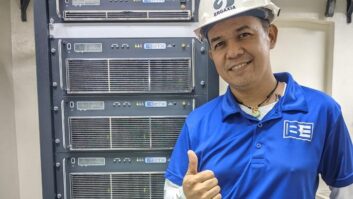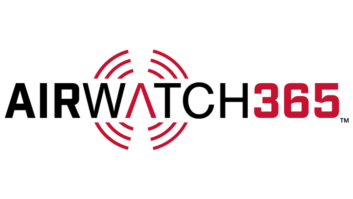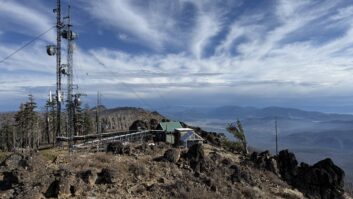The FCC is reviewing public comments in the IBOC proceeding with an eye towards changing or adding to public interest obligations for digital broadcasters.
One of the proposals on which the commission sought comment applies to both digital and analog stations: whether the agency should cut back on the number of hours a station may be operated unattended, or even repeal the rule entirely and require 24/7 staffing.
In 1987, the commission eliminated the former rule requiring a station to originate the majority of its non-network programming from its main studio. It said technical advances in program production and distribution prompted the action.
In 1995, as the stability of station monitoring and transmission equipment improved, the agency authorized unattended technical station operation and expanded the ability of facilities to control and monitor technical operations from remote locations.
The Emergency Alert System was designed around unattended operations. Yet in the text of its IBOC rules released earlier this year, the FCC asked whether the “widespread reliance on automated operations” limits the ability to effectively distribute EAS alerts.
What follows are excerpts of public comments regarding unattended operations.
Richard Cornwell, GM, WTBO-WKGO Corp., Cumberland, Md.:
The commission is considering requiring stations to be staffed 24 hours a day, 7 days a week because of EAS problems. The problem with EAS is not the radio station operator’s fault. It is inferior equipment used by EAS.
The system and its execution [need] a serious overhaul. Requiring stations to staff around the clock is basically making radio stations babysit a failed government system at station expense.
If the governments get the signal out to properly working equipment, the radio industry does a great job of getting the important warnings on the air. I have to say though, that the kind of tones and the delayed low level of voice audio used by EAS is part of the problem, in addition to the poor equipment problems.
In addition, expanding the staffing on thousands of small market radio stations will have a serious impact [on] the ability for many, many of those stations to continue to operate in a profitable manner. Increased staff and more tha[n] likely another round of new EAS equipment to have to purchase will put some stations out of business.
Public Interest Coalition — Benton Foundation, Campaign Legal Center, Center for Governmental Studies, Common Cause, Office of Communication of the United Church of Christ Inc., and Prometheus Radio Project, Washington:
The commission must ensure that automated broadcast operations are relevant during emergencies. Automated broadcast operations must be automatically overridden in an emergency. …
The commission seeks comment on issues relating to automated broadcast operations, rules governing them and their effect on “the ability of law enforcement and public safety officials to use radio broadcast stations effectively during emergencies.” The Public Interest Coalition recommends that automated broadcast operations be automatically overridden in the event of an emergency. The commission must also require stations to report during what times the stations rely on automated broadcasting.
Native American Christian Voice Attorney Jeffrey D. Southmayd, Washington:
The commission has on many occasions granted licenses for satellite operation waivers to numerous non-commercial stations in small communities to allow their main studios to be located at the studio of a co-owned, non-commercial station. These waivers have been granted to stations located both in contiguous communities to, and at a great distance from, the “parent station.” …
These satellite stations operate without any local staff in place and are fully automated, with the “parent station” monitoring the operation of the satellite. The commission has consistently found “good cause” to exist for granting a main studio waiver and allowing unmanned, satellite stations in instances based upon the economic benefits to non-commercial stations that are provided by such centralized operations from a single studio. …
Based on this, Native submits that the commission should not act in a manner that would modify the licenses for these main studio waiver satellite stations by requiring them to be locally staffed.
Such an action is unnecessary under the public interest standard, and would result in numerous satellite stations ceasing their operation due to the expense involved in local staffing of stations serving small communities. Rather, any action the commission takes in this regard should relate solely to the operation of the parent station and its main studio, not the unmanned satellite station. …
Native’s experience as a non-commercial station operator is that the technical advances in automated equipment allow its stations to respond to an EAS situation just as quickly as a fully staffed station. Each station has individualized EAS equipment located at the transmitter site.
The equipment instantly interrupts regular programming, and relays each essential local EAS message to the local population without delay. This efficient system is often superior to the delays that might be created while waiting for local staff to review the EAS information, decide on an appropriate course of action, rewrite the information, record the information, and then transmit the information over the air. …
EAS gear never leaves the station early, never has family emergencies, or stays home with the flu, and is always ready to instantly break into network programming with EAS warnings and messages. This level of reliability is tracked by computer files and tape at any time. Moreover, nothing inherent in the change over to a digital system will have any effect on the reliability of the present automation systems in effect.
NPR, Washington:
[W]e do not believe that now is the time nor this the proceeding to revisit, let alone fundamentally alter, existing commission rules allowing stations to automate station functions.
We are unaware of any systemic problems that would justify restricting the flexibility to automate broadcast operations.
If the commission believes there are specific issues that warrant attention, it is incumbent upon the commission to identify those issues. We understand that, with respect to EAS activation, the system is designed for auto-triggering, but many stations employ a manual trigger to maintain licensee programming control.
To the extent that situation warrants further commission consideration, the ongoing EAS proceeding is a better context in which to address the issue.
Otherwise, given the expense of the digital conversion, including developing new programming, and the uncertainty regarding the public’s adoption of the technology, increasing station costs by restricting automation is more likely to obstruct than advance the digital radio transition.
Nickolaus Leggett, Reston, Va.:
It is clear that automatic operation limits the ability of a radio broadcast station to respond to localized emergencies. Many immediate emergencies are local events that are not visible to distant organizations operating automated radio stations. …
[B]roadcast radio can provide a very major community service by providing warning and ongoing information about local emergencies. However, this service can only be provided when the radio stations are manned by local personnel.
These local personnel can be immediately informed of the local emergency and they can redirect the operation of the station to serve the local emergency. Since they are local residents, they will likely be familiar with the particular areas impacted by the emergency and can respond intelligently to the situation. …
Humans can provide emergency services that no automated system can provide. They can directly broadcast emergency messages from local emergency personnel, provide continuously updated information on the local situation, and improvise the provision of electric power to the station as needed.
I was without power for a week during a hurricane in New England. I listened to a manned local station on a battery-powered radio that provided continuous updates on the situation and the efforts to restore the electric power. …
The commission should require every radio broadcast station to be manned at all times that the radio station is on the air. This should apply to all stations from the largest full-power broadcast station to the smallest low-power FM (LPFM) broadcast station.
Clear Channel Radio, San Antonio, Texas:
Clear Channel continues to urge the commission to refrain from using broadcasters’ voluntary transition to DRB as a basis for imposing additional obligations on broadcasters that are not germane to the transition. … The DRB transition should not occasion revisitation of the automation rules. …
As many [commenters] point out, the dramatic technological advances that have been made since the commission first issued its automation rule in 1995 have strengthened the EAS system and continue to improve service to smaller communities. Broadcasters have been able to harness these advances to maximize scarce resources to enable further investment in unique programming, news and information services.
Broadcasting is not unique in employing automation. Every sector of the American economy has enjoyed enhanced productivity, permitting more rational allocation of people’s talents and skills, as a consequence of automation. Now is certainly not the time to turn back the clock.
Clear Channel agrees with NPR’s final analysis that, given the expense of the conversion to DRB and the uncertainty surrounding the public’s adoption of the technology, any effort to restrict automation is more likely to obstruct, rather than advance, the transition to digital radio.
Comment on this or any article. Write to [email protected].







